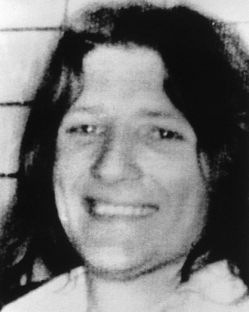Irish Republican Army: Catholics
In November 25, 1913 the Irish Volunteers were formed to show their support to the Home Rule. Then, on April 24 to April 29 in 1916, the people who were part of the Easter Rising came to be known as the Irish Republican Army. The Easter Rising was led by Patrick Pearse and James Connoly. They captured Dublin’s General Post Office.
The Irish Volunteers ( IRA) , were separated because there were some people that were against partition and there were some people that were not on 1922. The disagreement lasted for more than one year. There were two groups: Free State soldiers and the Irregulars. The leader of the Free State soldiers, Michael Collins, resulted to be dead because of the incident. This war ended when it was put down by the Provisional Government.
In November 25, 1913 the Irish Volunteers were formed to show their support to the Home Rule. Then, on April 24 to April 29 in 1916, the people who were part of the Easter Rising came to be known as the Irish Republican Army. The Easter Rising was led by Patrick Pearse and James Connoly. They captured Dublin’s General Post Office.
The Irish Volunteers ( IRA) , were separated because there were some people that were against partition and there were some people that were not on 1922. The disagreement lasted for more than one year. There were two groups: Free State soldiers and the Irregulars. The leader of the Free State soldiers, Michael Collins, resulted to be dead because of the incident. This war ended when it was put down by the Provisional Government.
Bobby Sands

The commander of the IRA was Bobby Sands. He joined the IRA when he was in his young teens. Sands fasted so that the people would listen to him and allow the Catholics to be free from Britain. Sands was the first hunger striker in 1981. Bobby and nine others died as a result of the Hunger strike on May 5, 1981. Sinn Fein was the political arm of the IRA and got to participate in some of the speeches for peace. it was formed on November 28th, 1905 is lead by Gerry Adams.
Demands from the Hunger Strikers
Demands from the Hunger Strikers
- The right to wear their own clothes
- No prison work except the maintenance and care of the parts that they own of the prison
- The right to socialize with other people and to form their own education in prison
- The right to be able to be visited and contacted (letters)
- The rights to be able to take some of their sentences off like all of the other prisoners.
Timeline
- 1913: The Irish volenteers were formed.
- 1916: Easter Rising occured. Also known as the Irish Republican Army.
- 1921: Free State Treaty.
- 1922: Free State Soldiers and Irregulars war.
- 1948: Irish Free States gained full independence from Britain.
- 1968: Civil Rights Movement.
- 1969: IRA splits.
- 1980's: Hunger strikes.
- 1994: IRA declares a cease fire.
- 1996: IRA stops cease of fire and declares peace
- 1998: Belfast Agreement
Ulster Freedom Fighters and Ulster Defence Association: Protestants
The UFF (Ulster Freedom Fighters) and the UDA (Ulster Defence Association) are both parts of a party called The Ulster Democratic Party. The Ulster Democratic Party is the political wing of the UFF and UDA. It is led by Garry McMichael and is one of the two loyalist parties to take place in the peace talks of 1997. The UFF was lead by Johny Adair, also called "Mad Dog". The Ulster Defence Association and the Ulster Freedom Fighters have the same job. They are loyal military force groups that protect the protestants from attempts to torment them through armed attacks (gun attacks) and political sabotage.
The UFF/UDA are enemies of the IRA. Ian Paisly was one of the main Protestants involved in the process. Paisly has earned a lot of confidence from the Protestants through all his speeches and "Image of strength". He is the part of the protestants that is peaceful and tries to find ways to solve the conflict. In March of 2007 Ian Paisly and Gerry Adams were face to face for thefirst time and made an agreement for a powersharing government. During the meeting Paisly said, " I believe we are starting on a road to bring us back to peace and prosperity."
The UFF/UDA are enemies of the IRA. Ian Paisly was one of the main Protestants involved in the process. Paisly has earned a lot of confidence from the Protestants through all his speeches and "Image of strength". He is the part of the protestants that is peaceful and tries to find ways to solve the conflict. In March of 2007 Ian Paisly and Gerry Adams were face to face for thefirst time and made an agreement for a powersharing government. During the meeting Paisly said, " I believe we are starting on a road to bring us back to peace and prosperity."
